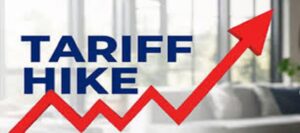Telecom
NCC Moves to End Unfair Transmission Cable Pricing, Monopoly
Nigeria n Communications Commission (NCC) in its tradition of harnessing stakeholders’ views before issuing out regulatory guidelines, on Tuesday, in Lagos, sought to know industry players’ input towards tackling unfair transmission cable pricing in the nation’s telecommunication sector.
Dr. Eugene Juwah, executive vice chairman of NCC, said that the commission heeded stakeholders cry to address the lingering arbitrary, predatory and discriminatory pricing inherent in the transmission line market segment.
On the heels of this, the NCC commissioned KPMG, a global network of professional firms notable for providing audit, advisory and tax services; to carry out a study on the matter.
Barely a year ago, NCC held a similar interactive Forum with focus on ‘Dynamics, Pricing and Related Matters’, where representatives of the operating Companies raised issues such as discriminatory and arbitrary pricing; predatory pricing; denial of access routes, among others.
Juwah, who was represented by Mr. Okechukwu Itanyi, executive commissioner, Stakeholder Management at NCC, at the Stakeholders Forum on ‘Transmission Cable Pricing’ said that on conclusion of the cost based transmission cable pricing study and on the verge of developing strong enforcement regulations, “the policy of the Government on Communication is that prices should be determines by market forces, but it also recognizes that in the journey from monopoly to full market competition, there would be period(s) of transition when competitive market forces may be inadequate to bring about efficient market conduct and prices that are close to costs”.
“In such situations, Juwah said, “the policy provides that regulatory intervention goes into effect. In the discharge of our regulatory and oversight functions, we are committed to participatory regulation and shall continue to ensure wide consultation before major decisions affecting the industry are taken”.
The EVC noted that, consequently, stakeholders’ inputs will be taken into accounts in finalizing the study.
Nodding in agreement, Ms. Josephine Amuwa, director, Policy, Competition & Economic Analysis at NCC, said that KPMG was contracted to carry out the study, comparing other markets and the International Telecommunications Union (ITU’s) standards.
According to her, part of the Study revealed that there are unfair practices in the industry as regards transmission cable pricing which were capitalized on by two dominate operators.
Amuwa said, “We Commissioned the Study in 2012 and on the process, we discovered that there are two dominate operators. Dominance on itself is not bad; a Regulator will not punish them, but will ensure they do not make the market uncompetitive. That is one of the reason KPMG was charged to use data provided by operators, weigh them in line with global best practices, while giving credence to ITU guidelines”.
The Director added that in the wake of clamour for ‘broadband Nigeria’, transmission market segment becomes even more relevant, as there are few players due to the inhibitive entry challenges.
Such challenges, she said include, right-of-way (RoW), double taxation, among other, through which monopoly crept in and led to anti-competitive environment, unfair pricing, refusal to use ducts, refusal to use supply channels, duplication of infrastructure and ultimately poor quality of service (QoS).
Speaking on behalf of the researchers, Mr. Joseph Tegbe, partner and head, Telecoms, Media and Technology Management Consulting at KPMG, said that it took them one year to gather data from operators, however, the exercise has paid off with the Study ready for stakeholders to consider issues involved.
While fielding questions from operators who wanted to know about the pricing models adopted in the report, considerations for geographical locations with peculiarities and other market indices, Tegbe advised them to use the two week window created by NCC for further input before the wholistic regulatory framework will be released.
In telecommunications, transmission cable depicts a system that transmits a signal from one place to another.
Simply put, it is the medium through which data (information) is transmitted from one point to another, for people’s daily usage of the internet, mobile network, cordless cables, among others.
Telecom
Nigeria Has World’s Most Affordable Data Costs – GSMA
Nigeria has an average data cost of $0.38 per gigabyte, making her the most affordable countries globally and one of the cheapest in Africa for mobile data services.

United States averages $6 per gigabyte and South Africa with $1.77 per gigabyte rank the highest globally and in Africa respectively.
According to the GSMA, Nigerian data costs, as a percentage of Gross National Income (GNI) per capita, are among the lowest across Africa.
The reports by the body lends weight to telecom operators advocacy for tariff adjustments to address economic pressures threatening the sector’s sustainability.
The GSMA report, titled “The Role of Mobile Technology in Driving the Digital Economy in Nigeria,” highlighted Nigeria’s competitive data pricing, which is significantly lower than other African nations, such as Kenya ($0.59 per gigabyte), Ethiopia ($0.68 per gigabyte), and South Africa ($1.77 per gigabyte).
By contrast, the United States averages $6 per gigabyte, underscoring Nigeria’s advantage in offering cost-effective connectivity.
The cost of mobile data in Africa varies greatly by country and region.
Data costs can refer to the cost of mobile data or the cost of acquiring, maintaining, and using business data.
In 2023, the average cost of 1 GB of mobile data in Sub-Saharan Africa was $3.31, while in Northern Africa it was $0.86.
Telecommunications operators in Nigeria have been requesting some policy changes as well as tariff rebalancing to enable them deliver support to the Government’s digital economy objectives.
They have called for the simplification and improvement of the Right of Way (RoW) charging and administration process, harmonised across the country
According to them, all government authorities (at national and sub-national levels) should apply the national maximum RoW fee of N145 per/LSQM adopted by the National Economic Council (NEC) for the deployment of fibre across all states in Nigeria.
There should be a single point of contact in each state for the RoW application process while the duration for the approval process should be digitalised and limited to a maximum of one month.
Simplification and reduction of the tax burden on the mobile sector
On tariff, recall that the Association of Licensed Telecommunications Operators of Nigeria (ALTON) and the Association of Telecommunications Companies of Nigeria (ATCON) had urged the Nigerian Communications Commission (NCC) to consider reviewing tariffs upward to address rising operational costs.
Nodding in agreement, Bismarck Rewane, chief executive officer, Financial Derivatives, said the proposed tariff hike by telecommunications will help reduce inflation in the country.
He said it would help to reduce inflation because it increases productivity, stressing that the price of MTN shares went up by 10% to 220.
Rewane reiterated that investors had already factored that in, adding that they are expecting a lot of good goodies.
“But more important to think about is the fact that because of an increase in tariff and an increase in investment to make the industry sustainable, they’re going to see an increase in productivity, not directly but indirectly.
“Any increase in productivity and output is likely to allow inflation to moderate, which is the goal. So, we heard from the policymaker, Bosun Tijani, who was very clear that we want a sustainable sector. But we also heard from the regulator saying that we will hold these guys to quality of service.
“We also heard from the operators, MTN that they are all revving up. So in all, there are economic benefits because of increased output and productivity. Two, policymakers are aligned because they want this to lead to a moderation in inflation,” he added.
He further said that it was not a bad deal and re-echoed the minister’s comment that the tariff hike will not be 100 per cent.
“Will they get 100%? No, they will definitely not. We suspect that we are going to likely see something between 40 and 50% which is fair after so many years of static changes,” Rewane added.
Telecom
Bismarck, Economist Claims Planned Tariff Hike by Telcos Will Reduce Inflation
Bismarck Rewane, chief executive officer, Financial Derivatives, has said the proposed tariff hike by telecommunications will help reduce inflation in the country.

Rewane made this statement on Channels Television’s Business Morning on Thursday.
Recall that Association of Licensed Telecommunications Operators of Nigeria (ALTON) and the Association of Telecommunications Companies of Nigeria (ATCON) had urged the Nigerian Communications Commission (NCC) to consider reviewing tariffs upward to address rising operational costs.
On January 3, Karl Toriola, chief executive officer (CEO), MTN Nigeria, said telcos want a 100 percent tariff hike.
According to Rewane, who previously supported the plans for a tariff hike, the move will make the sector more sustainable.
He said it would help to reduce inflation because it increases productivity, stressing that the price of MTN shares went up by 10% to 220.
Rewane reiterated that investors had already factored that in, adding that they are expecting a lot of good goodies.
“But more important to think about is the fact that because of an increase in tariff and an increase in investment to make the industry sustainable, they’re going to see an increase in productivity, not directly but indirectly.
“Any increase in productivity and output is likely to allow inflation to moderate, which is the goal. So, we heard from the policymaker Bosun Tijani, who was very clear that we want a sustainable sector. But we also heard from the regulator saying that we will hold these guys to quality of service.
“We also heard from the operators, MTN that they are all revving up. So in all, there are economic benefits because of increased output and productivity. Two, policymakers are aligned because they want this to lead to a moderation in inflation,” he added.
He further said that it was not a bad deal and re-echoed the minister’s comment that the tariff hike will not be 100 per cent.
“Will they get 100%? No, they will definitely not. We suspect that we are going to likely see something between 40 and 50% which is fair after so many years of static changes,” Rewane added.
Telecom
Microsoft to Spend $80Bn on AI Data Centres
In a bid to build AI-enabled data centres, Brad Smith, vice chair and president, Microsoft has disclosed the company’s plan to spend approximately $80 billion in its current financial year (to end in June), with more than half of that investment designated for the US.

Smith in a blog post, explained the tech giant plans to use the data centres “to train AI models and deploy AI and cloud-based applications around the world.”
Smith welcomed U.S. President Donald Trump to his second term in office, he cautioned against “heavy-handed regulations” that could slow down the private sector.
“The most important US public-policy priority should be to ensure that the US private sector can continue to advance with the wind at its back,” Smith stated.
He further explained that the U.S. “needs a pragmatic export control policy that balances strong security protection for AI components in trusted data centers with the ability for U.S. companies to expand rapidly and provide a reliable source of supply to the many countries that are American allies and friends.”
Stating that the US is well-positioned to flourish in its development of AI due to solid technology development and an innovative private sector.
“If the Trump Administration can develop a strong national AI talent strategy and use AI to make the government more effective and efficient, it will put the country on a promising path.”
He stated the U.S. is in a strong position to “win the essential race with China by advancing international adoption of American AI.”
Smith further claimed U.S. “products are more trusted than their Chinese counterparts, and our private sector is unmatched in its ability to invest in infrastructure around the world.”

 E-Financial2 days ago
E-Financial2 days agoSEC to Strengthen Borrowing Framework for Governments, Corporates

 E-Business2 days ago
E-Business2 days agoKaspersky Reviews Main Business Headache Related to IT Security

 Telecom2 days ago
Telecom2 days agoBismarck, Economist Claims Planned Tariff Hike by Telcos Will Reduce Inflation

 E-Business3 days ago
E-Business3 days agoFirm Explores 2025 Potential IT Outage and Supply Chain Risk Scenarios

 E-Financial3 days ago
E-Financial3 days agoGTCO Completes First Phase of Capital Raise Initiative with N209bn

 General News24 hours ago
General News24 hours agoNigeria Recovers $52.88m in Assets Linked to Former Petroleum Minister Diezani Alison-Madueke

 Telecom3 days ago
Telecom3 days agoCall, Data Tariffs Will Increase – Nigerian Minister, Tijani Declares

 E-Business2 days ago
E-Business2 days agoFG to Add Iris Biometrics to Digital ID for more Inclusion




















